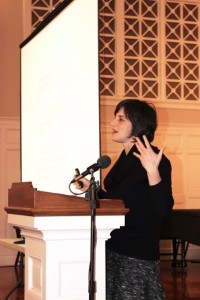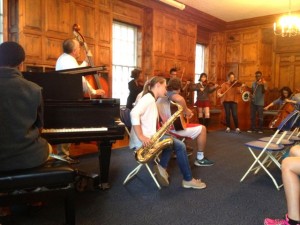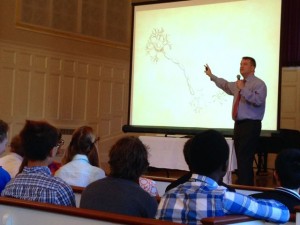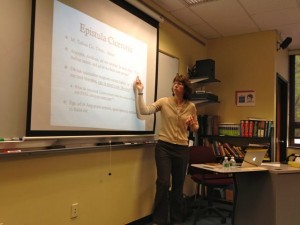
Rachel Simmons opened her talk on Friday morning with a confession: She was a failure. In fact, she had once failed so spectacularly that the president of her college described her as an embarrassment.
What had she done? Ms. Simmons had been accepted to Oxford University as a Rhodes Scholar after college, but had decided to quit the program midway through.
“Up until that point, whatever I wanted to do, I had this feeling that I could get done,” Ms. Simmons, author of The Curse of the Good Girl and Odd Girl Out, told her audience of Williston Northampton students and faculty.
This was Ms. Simmons second visit to the Williston Northampton School. Ms. Simmons, A nationally regarded speaker on bullying prevention and female empowerment, spoke to Williston girls last spring about how they could identify hurtful behavior and change the patterns that created it.
During the special assembly on December 12, Ms. Simmons admitted that although she hated the Rhodes Scholar program, deciding to quit was a point of such personal shame that she felt “completely shattered.”




